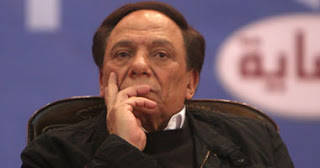auto insurance quotes
Here at FemaleCarInsuranceQuote.Org we believe that women deserve low car insurance rates because you have earned them due to your driving history! If you would like a cheap female car insurance quote, just put your zip or postal code in the box above, click submit and you will be able to comparison shop car insurance rates for women right from your PC. Oh and your phone won’t light up like a Christmas tree , because every Car Insurance Agent in the country isn’t going to be calling you—like the other websites do.
 |
Car Insurance Quotes |
Car Insurance Quotes for Young Female Drivers
Car insurance companies take into account numerous variables whilst reading through your current driving record to figure out if you’re a dependable person or perhaps not.
All of these components range from the quantity of traffic infractions, type and number involving claims, participation in crashes, as well as the importance of those violations. The way in which a female car insurance company sets your auto insurance rate is based on how much risk or the likelihood of a claim being paid out based on your driving history either in the US or in the UK. You ladies really get better treatemnt when shopping for a female car insurance quote.
car insurance comparison companies
Not only do you enjoy lower premiums, but there are several car insurance comparison companies that have created auto insurance policies specifically for women. A good questions is why do some car insurance carriers seem to prefer female drivers?
The answer is pretty simple and straightforward, they are considered safer drivers then men and correspondely have less car insurance claims and are seen as more level headed than Men, and are rewarded with lower car insurance rates. Also another fact about female car insurance quotes is that women funnily enough seem to submit claims for smaller expenses than men.
Generally, men will submit a claim for a totaled vehicle while young ladies auto insurance claim reports smaller items such as dings in the driver side door. It’s not scientifically verifiable to say women are better motor vehicle drivers than you men, but they do spend less on their auto insurance premiums than men do, and that’s the fact to keep in mind. And to be fair to the guys out there, Men do have lower health insurance premiums than women under 65 years of age. So it all works out in the end.
Compare Young Female Car Insurance Quotes Online
Anytime you compare car insurance online, you want to make sure you always compare “Apples to Apples”. Let’s say you a comparing a low cost car insurance quote to full coverage car insurance plan with all the “bells and whistle’s”.
Now, it’s important to recognize what make’s those car insurance policies different, and that you understand how different coverage options work. That way if you ever have a car insurance claim you will know pretty much what to expect and how the auto insurance company will handle it.
Car Insurance Quotes
Female Car Insurance QuoteA female car insurance quote or auto insurance for women is based on a few criteria:
Age
Driving Record
Credit
Type of Vehicle
Occupation
That’s just to name a few. Contact a local car insurance agent to compare rates online for a female only car insurance policy from mutilple providers at once without the need for you to fill out 4-5 forms online yourself.











